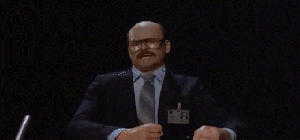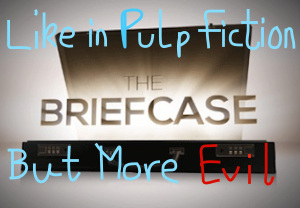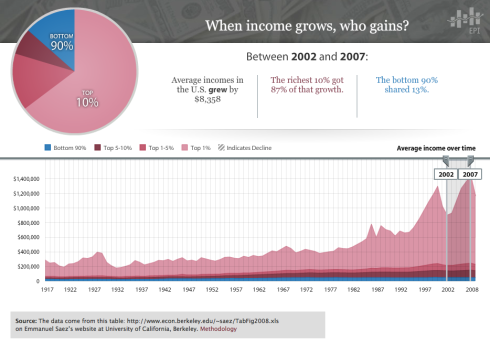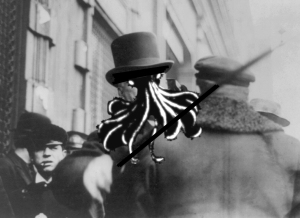Politics is about who gets to do what to whom.
Voting, electoral politics, and political parties are a very small part of politics.
Case in point: this bullshit.
CBS’ The Briefcase, where viewers watch two desperate families fight over resources: the producers take two families, give one $100,000 and tell them to decide how to split it with another. Are both families poor and desperate? They are! Does the deciding family snoop through the finances and lifestyle of the Other family to decide how “deserving” they are? They do!
Beyond the obvious responses – e.g.: zounds (contemporary swear words seem inadequate) this is awful; jobs are so poorly paid that groveling on national TV for stop-gap amounts of cash seems like a necessary economic decision; between CBS, the production team of the show itself, ad agencies, in-house PR firms, etc: thousands of people signed off on this thing –

Beyond all that, consider how this show differs from gladiatorial combat in the Colosseum. One is entertainment through destroying the body, the other through destroying the spirit. Which is worse to watch? Of those two toxic weeds, which indicates they grew in a more polluted environment?
Elias Isquith at Salon and Margaret Lyons at Vulture point out how the show reflects political economic dynamics. Both Isquith and Lyons link the personal circumstances of the contestants to what kind of society supports a show that has such contestants.
Isquith:
What “The Briefcase” does is tell the people who are unfortunate enough to not only be poor but also to be watching CBS that this mental anguish is, ultimately, something they’ve brought upon themselves [. . .] What’s happening here is much more dehumanizing, and requires much more of a buy-in on the part of its victims. It’s not [altruistic pornography]; it’s “The Hunger Games.”
And Lyons:
The Briefcase does it in a clear and methodical way, but we live in a culture that habitually depicts poor people or poverty as inherently other [. . .] Why does the burden of helping “struggling” people fall on other struggling people?
To sharpen the point they’re both dancing around: conscious political decisions made about how to structure the US economy created the desperate environment in which the show’s contestants find themselves. Decisions about how high wages are allowed to rise, who bears what kinds of risk, and who reaps the gains of economic growth.
As a necessary condition required for those particular decisions to happen, they have to be invisible. How long would economic growth or income distributions (not wealth, mind you, *income*) be as lopsided as a sumo and a monk on a teeter-totter if people knew who was pulling which political levers to make those things happen?
Part of the fog that obscures those decisions is the erasure of class distinctions and an overbearing sense of agency: everyone is middle-class, and if you’re struggling to make ends meet it’s because of something you *did*. The economic space in which you act isn’t shaped by anything, and it’s a place where ordinary folk like you can exercise decisions that matter.
The fog is the world of The Briefcase.
Of course the real world isn’t that.
Lovecraft was right, it’s a desolate space of horror where CEOs and financiers gibbering slobbery words wave their hands in inscrutable movement shaping the economy to their benefit by forging chains with the energies of their capital that keep taut politicians, courts and institutions as they stagger. They are the Old Gods shaping things in ways the ordinary can’t see or comprehend. If they take notice of the billions they condemn to misery and pain they give no sign.
Except when they do notice, and they notice you, all of a sudden you’re on national TV where it seems like your ideas about what’s valuable and fair control an economic outcome.
They don’t.
Because in a sign that their hidden decisions are in utter control over your fate: the big reveal at the end of every episode is that both families are the ones divvying a briefcase for the other, and each gets to keep the full amount.
O there are tears. O yes. Tears of utter joy and gratitude.





1 comment
Comments feed for this article
July 13, 2016 at 3:47 pm
Name
reality shows are fake. producers pick participants who will act correctly, as with game shows.
LikeLike